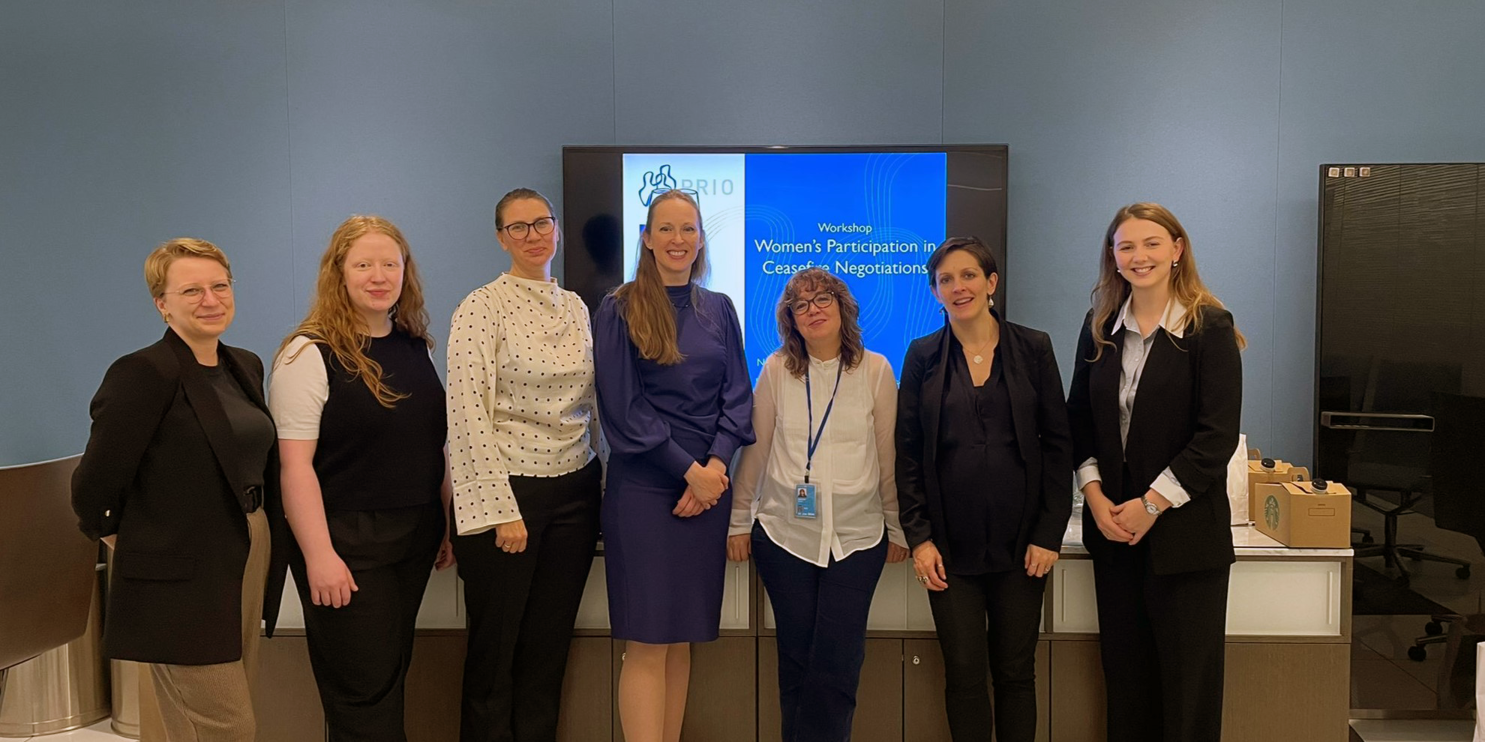
Ceasefire negotiations are overwhelmingly male-dominated enterprises that often lay the foundation for future peace negotiations as well as handle dire security situations for the population. This makes understanding this form of negotiation central if we are to improve women’s participation and ensure that broader societal interests are considered in a future peace. Despite this, there is a notable lack of systematic studies on the subject.
To address this knowledge gap, a significant step towards progress was taken on October 20 when PRIO, in collaboration with The International Crisis Group, organized a workshop in New York on women’s participation in ceasefire negotiations. Convening a range of experts and perspectives, the participants explored insights from new data on ceasefire processes and examined practical examples of women’s involvement in negotiations across Colombia, the Philippines, Yemen, and ongoing policy processes. The workshop was held in advance of the UN Security Council Women, Peace and Security (WPS) Open Debate week which has a focus on “Women`s participation in international peace and security - From theory to practice” where women’s inclusion in ceasefire negotiations has become a novel theme.
During the workshop, participants raised several candid points to inform the way forward. In particular, participants emphasized the need to shift the narrative from viewing ceasefire negotiations as primarily technical to processes that extend beyond traditional military aspects. Many ceasefire negotiations, they noted, address broader societal interests such as recruitment and humanitarian concerns. Hence, we need to recognize that ceasefires range from unilateral, short-term secessions in violence to multilateral encompassing processes with monitoring mechanisms. In this more granular understanding, it becomes apparent that women’s participation and efforts to influence can take many forms. This spans from formal roles in mediation, involvement with warring parties, and civil society engagement, to informal and organized efforts to pressure parties to a conflict to negotiate.
When promoting ceasefires and women’s participation, recognizing and valuing local expertise was another recurring theme. Participants stressed the importance of moving away from the conception that women are token representatives. Rather, we need to become better at understanding local power dynamics and consider how a more comprehensive participation base can bring valuable knowledge into ceasefire negotiations. Here, the discussion touched upon the support for coalition building among women's groups and the role of garnering support at multiple levels, including from the UN.
Workshop participants also pointed out challenges in bringing the right people into negotiations. For instance, they highlighted the struggle of quickly mobilizing funds for women's initiatives and ensuring continuous training and capacity building for women peacebuilders; dynamics that need to become more equal to the funding and capacity building offered to male-dominated parties. This includes pay for work done, childcare support, and managing other existing responsibilities preventing women’s engagement. In moving this forward, practical efforts are being undertaken to address obstacles, including the International Civil Society Action Network’s “10 Steps to Ensure Gender Responsive Processes & Ceasefire Agreements” and the UN Department of Political and Peacebuilding Affairs' “Women in Ceasefire Negotiations Course”. UN Women are stepping up the collection of data and policy formulation, and the UN Secretary General’s office can play a central role as Special Envoys can be key. To move forward, we need leadership and political will from all central parties to a negotiation and more substantiated support from research.
About the project and workshop The workshop is a part of the PRIO project The Inclusion of Women in Ceasefire Processes funded by the Norwegian Ministry of Foreign Affairs and draws on data from the ETH/PRIO Civil Conflict Ceasefire Dataset from the Ceasefire Research Project. The project starts from the fact that women’s participation in ceasefires remains underexamined in systematic research. Practical and policy efforts, however, have progressed further. The workshop thus aimed to bridge the policy-research divide and acquire critical insights for advancing scholarly knowledge that can be translated into practice. The project is currently being followed up by interviews and qualitative information from women involved in ceasefire negotiations.





